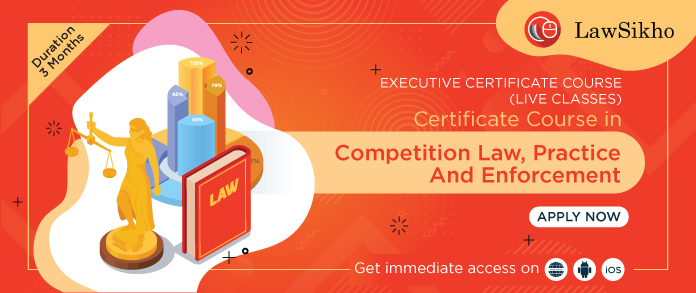This article is written by Sarthak Gupta.
Covid-19 is fast becoming the greatest global crisis since World War II. Numerous have died and projection suggests the number may swell up to hundreds of thousands, perhaps more. Countries are taking extremely difficult decisions and complex measures. However, in the area of freedom of information, there is not much difference between the current crisis and ‘peacetime’ conditions but states around the world on the name of battling misinformation and fake news are cracking down journalists and implementing the sweeping restriction.
In India on 31st March 2020, while hearing writ petition filed under Article 32 of the Constitution of India in Alakh Alok Srivastava vs Union of India, the Supreme court passed the direction, the implication of which are grave and against the constitutional principles of a free press. The writ petition was pertaining to the issue of “redressal of grievances of migrant workers in different parts of the country”. The court on analysing the argument of the Union of India directed the media to “refer to and publish the official version about the developments”. Moreover, the court observed that it trusts and expect all namely public authorities, state governments, citizen to faithfully obey orders, advisories and the directive issued by the Union Government in the interest of public safety.
The Founding Fathers of India attached great importance to the fundamental rights including the right to freedom of speech and expression. The chairperson of the drafting committee, B.R Ambedkar termed the Part of III of the constitution as the “most citizen part of the constitution”. In order to ensure freedoms guaranteed by the constitution are not arbitrarily curtailed, a system of checks and balances was placed. Article 19(1)(a) of the constitution of India guarantees all citizens freedom of speech and expression. Article 19(2) allows a reasonable restriction to be placed on speech and expression only by existing law or a law made by the State.
The term “law” used, occupies a great significance. It traces its authority to the legislature or even executive in the form of any bye-law, rule, regulation, notification, ordinance, order, custom or usages having in the territory of India the force of law. The order passed by Court is not considered to be “law” for the purposes of Article 19 (2). Article 19 (2) envisages a regime where a court order cannot encroach on right to free speech and expression – even if the restriction imposed by it is “reasonable”. In the present case, the Supreme Court of India by restricting freedom of the press has ensured that the deliberative process envisaged by the Constitution is rendered meaningless.
In the public health emergency crisis, the free flow of independent news is as important as readily accessible health care, both in terms of having an open dialogue and debate on the adequacy of those measures and educating the public about the nature of the threat. In Govt. of India vs, The Cricket Association of Bengal (1995) 2 SCC 161, the Supreme Court of India recognized the right to information as a fundamental under Article 19 of the Constitution. The Court observed in its judgment that the “freedom of speech and expression under Article 19 includes the right to acquire information and disseminate it. It enables people to contribute to the debate on social and moral issues. The right to freedom of speech and expression means right to education, to inform, to entertain, and right to be educated and informed.”
On 11 August 2000, The United Nations Committee on Economic, Social and Cultural Rights declared in General Comment No. 14 that the right to health is “closely linked and dependent upon the attainment of other human rights ….. [including] ….. access to information,” which committee considered as an “integral component of the right to health.” Moreover, in footnote 8, the committee observed “This general comment confers particular stress to access to information because of the special importance of this issue in relation to right to health.”
Whether it was the Chernobyl disaster or contaminated infant milk powder scandal, all throw light on the importance of the free press in a public health crisis. An analysis by Reporter Without Border shows how china’s censorship and control over information have cost the world thousands of lives and yet another pandemic. A free and independent press acts as a watchdog over government actions and exposes the government’s error in the fight against the virus which in turn helps both the state and citizens to make the right decision.
It is very much true that in the time of crisis, misinformation abounds. Covid-19 was developed in a Chinese lab to be used as Biological weapon, Ministry of Communication will record all phone calls, Cristiano Ronaldo and Pope test positive for Covid-19 are just a few examples of the fake news. Misinformation is traveling fast, multiplying just as quick as Covid-19 itself and spreading panic and confusion among the masses, and without a doubt, journalism is the best antidote to this information “infodemic”. Media has the role of promoting serenity in a frightened society and this serenity can be achieved only through truthful, complete, and accurate information to the society without any interference from outside.
While it is important to have a certain degree of restriction on fundamental freedom but these restrictions should be necessary, transparent, and proportionate to limiting the spread of the outbreak. The press is an indispensable pillar of democracy and it has a role crucial role in controlling the Covid-19 crisis, any interference with its freedom would the only damper the chance of timely control of the Covid-19. In History, there have been numerous examples of government reserving wide power in times of crisis only to never give up the power even years after the crisis. The author will like to conclude with defining lines of Justice HR Khanna in his powerful dissent in ADM Jabalpur vs Shivkant Shukla (1976) 2 SCC 521 case :
“Extraordinary powers are always assumed by the government in all countries in times of emergency because of the extraordinary nature of the emergency. More is at stake in these cases than the liberty of a few individuals or the correct construction of the wording of an order. What is at stake is the Rule of Law”.
LawSikho has created a telegram group for exchanging legal knowledge, referrals and various opportunities. You can click on this link and join:
https://t.me/joinchat/J_0YrBa4IBSHdpuTfQO_sA
Follow us on Instagram and subscribe to our YouTube channel for more amazing legal content.
 Serato DJ Crack 2025Serato DJ PRO Crack
Serato DJ Crack 2025Serato DJ PRO Crack











 Allow notifications
Allow notifications


